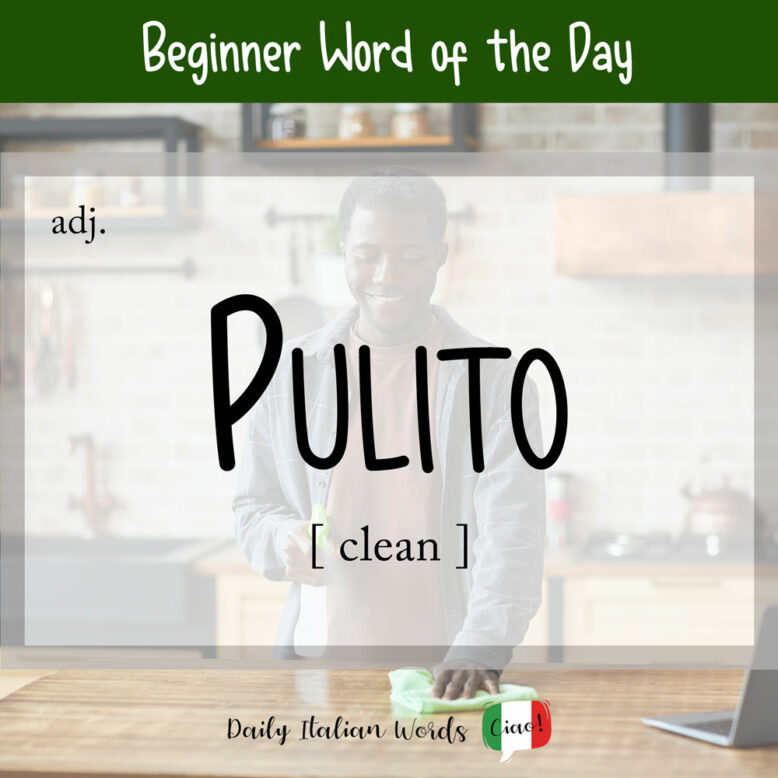The adjective pulito, whose primary translation is clean in English, is the past participle of the verb pulire (to clean). It comes from the Latin verb ‘polire’ of the same meaning.

Pulito is the masculine singular form of this adjective. In order to make it feminine, it is necessary to change the word final o to a (pulita).
È difficile tenere la casa sempre pulita!
It’s hard to keep the house clean all the time!
To create the respective plural forms, change o to i (plural masculine puliti) and a to e (plural feminine pulite).
Le tue mani non sono molto pulite. Le hai lavate bene?
Your hands aren’t very clean. Did you wash them well?

In other contexts, pulito can translate as clear (e.g. un cielo pulito = a clear sky), refined (e.g. uno stile pulito = a refined style), polished (e.g. marmo pulito = polished marble) or honest (e.g. un ragazzo pulito = an honest guy).
One related term you are bound to come across within weeks of living in Italy is pulizia which translates as cleanliness or cleaning. Note that the plural pulizie is used just as often, if not more frequently to mean the same thing. A few common terms and expressions include:
- la pulizia / le pulizie di casa = house-cleaning
- fare la pulizia / le pulizie = to clean (usually a house or office)
- donna / uomo delle pulizie = cleaning lady / man
- le pulizie di primavera / primaverili = spring cleaning
Expressions using the word ‘pulito’
Avere le mani pulite
Literal translation: to have clean hands
English meaning: to not be involved in dishonest activities
Farla pulita
Literal translation: to pass it clean
English meaning: get away with something, to avoid the punishment you deserve or overcome a danger without coming to harm
Mettere a pulito
Literal translation: to put it clean
English meaning: to transcribe a good copy
Fare piazza pulita
Literal translation: to make a clean square
English meaning: to send everyone away, to take everything away, to sweep away
Heather Broster is a graduate with honours in linguistics from the University of Western Ontario. She is an aspiring polyglot, proficient in English and Italian, as well as Japanese, Welsh, and French to varying degrees of fluency. Originally from Toronto, Heather has resided in various countries, notably Italy for a period of six years. Her primary focus lies in the fields of language acquisition, education, and bilingual instruction.


